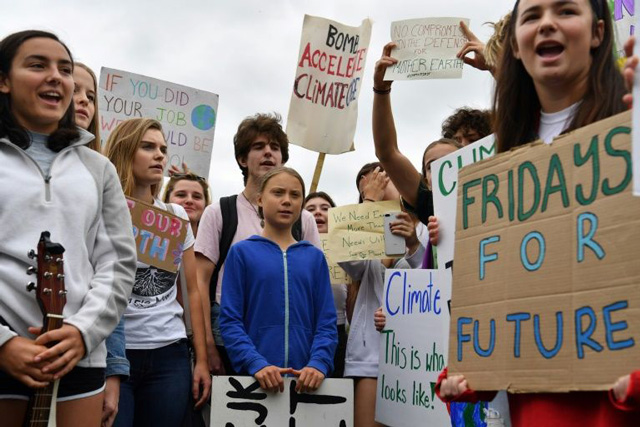
‘Greenwash festival’
Days before the conference ended, plain talking Greta Thunberg, the young Swedish climate activist, had already got a clue of how COP26 would end. She noted during one of the protests organised outside the conference venue how the conference had already failed at so many levels.
“This is no longer a climate conference; this is now a global north greenwash festival,” she said, “The COP has turned into a PR event, where leaders are giving beautiful speeches and announcing fancy commitments and targets while behind the curtains, the governments of the global north are still refusing to take any drastic action.”
“It should be obvious that we cannot solve a crisis with the same methods that got us into it in the first place,” she added, “We are tired of their blah, blah, blah.”
Dr Jeni Miller, the executive director of the Global Climate and Health Alliance noted how the health community had gone to Glasgow with clear demands from 46 million health workers on issues critical to protecting people’s health and social equity – yet COP26 had delivered on just a few of them.
“Coming out of this COP, governments cannot assume that they can now rest – they must instead push far beyond what is asked of them in the Glasgow Climate Pact in order to achieve what is required to protect human health from climate change,” she said in a statement released just hours after the closure of the conference.
“To top it off, governments failed to deliver the $100 billion per year of climate finance that had been previously promised by last year, and any approach to compensating low income countries for the health and other impacts they are already struggling with is absent from the COP26 outcome documents.”
Rachel Cleetus, a policy director and lead economist in the Climate and Energy Programme at the Union of Concerned Scientists (UCS) has been attending the U.N.’s international climate talks and partnering with the international community on climate and energy policies for more than 14 years. She too appeared disappointed with the COP26 outcomes.
“Nations gathered in Glasgow with the undeniable reality of the climate crisis, compounded by the COVID-19 pandemic, unfolding starkly around the world,” she said.
“Scientists, youth activists and representatives from communities on the frontlines of this crisis also joined, bringing the power of facts and the moral clarity of their lived experiences, while advocating for robust solutions.”
She had also been encouraged by a flurry of new climate initiatives announced in the first week created momentum that unfortunately stalled out in week two. A surprise joint declaration by the United States and China, while a valuable demonstration of diplomacy between the world’s two largest emitters, failed to provide any new tangible commitments.
But Cleetus says the Glasgow Climate Pact failed to prioritise climate finance for developing countries to transition away from fossil fuels, adapt to worsening impacts, and cope with irreparable loss and damage from climate change.
“The final COP26 decision is overwhelmingly compromised by countries that have contributed most greatly to the climate crisis and once again denies justice for climate vulnerable developing countries already experiencing loss of lives, livelihoods, culturally significant sites, and critical ecosystems. It also reflects the pervasive access and equity issues that plagued the Glasgow talks from the start.
For Miller, developed countries cannot just keep talking about finance for loss and damage and adaptation – they need to deliver the necessary resources. “This has got to be a major focus of COP27, which will be hosted by Egypt on behalf of the Africa region.”
****
 The Independent Uganda: You get the Truth we Pay the Price
The Independent Uganda: You get the Truth we Pay the Price


